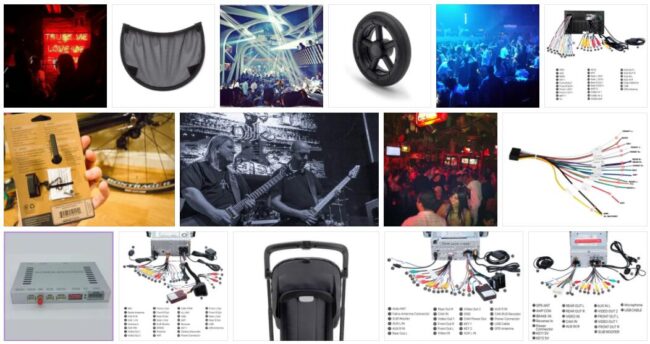A crystal clock is a stunning and elegant timekeeping device that incorporates crystals, often quartz, into its design. Renowned for their exquisite beauty and precision timekeeping, crystal clocks serve as both functional timepieces and exquisite decorative pieces. In this exploration, we’ll delve into the origins, design elements, functionality, technological aspects, cultural significance, and diverse applications of crystal clocks. See night light wall clock.
Origins and Evolution:
The origins of crystal clocks can be traced back to the early 20th century when advancements in quartz crystal technology revolutionized timekeeping. Quartz crystals, prized for their remarkable ability to vibrate at a precise frequency when subjected to an electric current, became the cornerstone of modern clock and watch mechanisms.
In the 1920s, Swiss engineer Warren Marrison developed the first quartz clock, laying the groundwork for the widespread adoption of quartz crystal technology in timekeeping devices. Over the decades, quartz crystal clocks evolved from large, bulky laboratory instruments to sleek and stylish consumer products that graced the mantels and desks of homes and offices around the world.
Today, crystal clocks are admired for their exquisite craftsmanship, precision timekeeping, and timeless beauty. With advancements in design and technology, crystal clocks come in a variety of styles, shapes, and sizes, ranging from traditional mantel clocks to contemporary desk clocks and ornate wall clocks.
Design Elements:
One of the defining characteristics of a crystal clock is its use of crystals, often quartz, as a central design element. The clock mechanism is typically housed within a transparent or translucent crystal casing, allowing users to admire the intricate inner workings of the clock while also enjoying the beauty of the crystal.
Crystal clocks may feature a variety of design elements to enhance their aesthetic appeal. The crystal casing may be embellished with decorative patterns, etchings, or engravings that add visual interest and elegance to the clock. The clock face may be adorned with numerals, markers, or other decorative elements that complement the overall design of the clock.
In addition to quartz crystals, crystal clocks may incorporate other materials such as metal, glass, or wood into their design. The choice of materials, finishes, and colors can vary, allowing users to customize their crystal clock to suit their personal style and preferences.
Functionality:
Crystal clocks offer the same level of precision timekeeping as traditional quartz clocks while also serving as exquisite decorative pieces. The clock mechanism is powered by a quartz crystal oscillator, which generates a stable and reliable frequency that regulates the movement of the clock hands or display.
Users of a crystal clock can easily read the time by observing the clock face, which may feature traditional analog hands, numerical digits, or digital displays. The transparent or translucent crystal casing provides a clear view of the clock mechanism, allowing users to see the intricate movements of the gears and components as they keep time.
In addition to displaying the time, many crystal clocks also feature additional functionalities such as alarm settings, temperature displays, and decorative lighting effects. These features enhance the functionality and versatility of the clock, allowing users to customize their timekeeping experience to suit their preferences and needs.
Technological Aspects:
From a technological standpoint, crystal clocks rely on quartz crystal technology to ensure precise and accurate timekeeping. The quartz crystal oscillator generates a stable frequency that regulates the movement of the clock hands or display, ensuring that the clock maintains accurate timekeeping over extended periods.
The clock mechanism may be powered by batteries, electricity, or a combination of both, depending on the specific model and design. Battery-powered clocks offer greater portability and flexibility, allowing them to be used in a variety of settings without the need for an external power source.
In addition to the quartz crystal oscillator, crystal clocks may incorporate other advanced technologies such as radio-controlled time synchronization or atomic clock accuracy to further enhance their precision and reliability.
Cultural Significance:
Crystal clocks hold significant cultural importance as symbols of elegance, sophistication, and timeless beauty. They are often passed down as heirlooms from one generation to the next, serving as cherished keepsakes and reminders of special moments and milestones.
In addition to their sentimental value, crystal clocks are also prized for their aesthetic appeal and decorative versatility. They add a touch of luxury and refinement to any interior decor, whether displayed on a mantel, desk, or shelf.
Crystal clocks are also popular gifts for special occasions such as weddings, anniversaries, graduations, and retirements. Their timeless beauty and precision timekeeping make them thoughtful and meaningful gifts that are sure to be treasured for years to come.
Diverse Applications:
Crystal clocks have diverse applications across a wide range of settings, including residential, commercial, and hospitality environments. In homes, crystal clocks can be used as elegant and functional additions to living rooms, bedrooms, dining rooms, and home offices, where they provide both timekeeping functionality and decorative flair.
In commercial settings, crystal clocks can be used as stylish and sophisticated accents in hotels, restaurants, retail stores, and corporate offices, where they add a touch of luxury and refinement to the interior decor. Crystal clocks can also be customized with logos, branding messages, or other personalized designs to create unique and memorable experiences for customers and visitors.
Conclusion:
In conclusion, the crystal clock is a stunning and elegant timekeeping device that combines the beauty of crystals with precision quartz technology. With their exquisite craftsmanship, timeless beauty, and precise timekeeping, crystal clocks serve as both functional timepieces and exquisite decorative pieces that add a touch of luxury and refinement to any space. Whether displayed in homes, offices, or public spaces, crystal clocks make a bold statement about their owners’ appreciation for elegance, sophistication, and timeless beauty.


